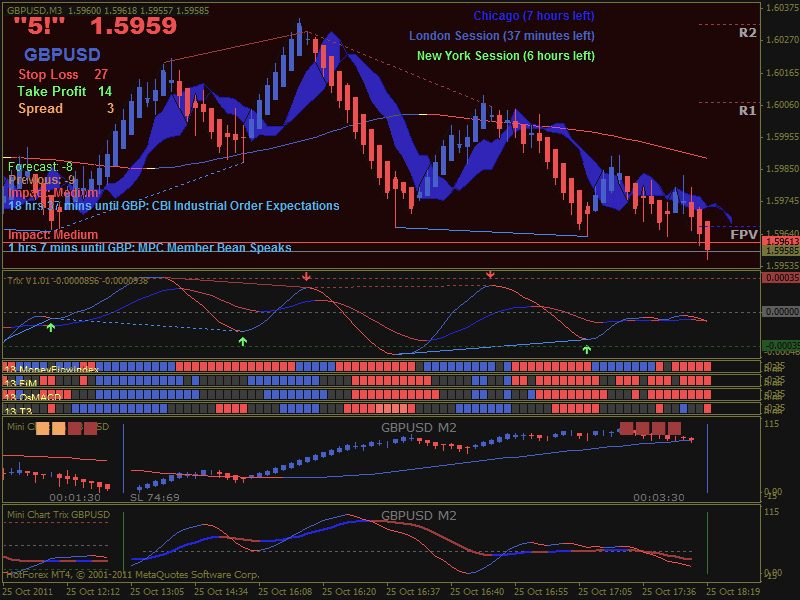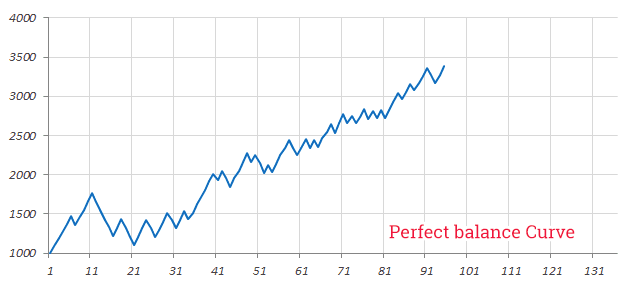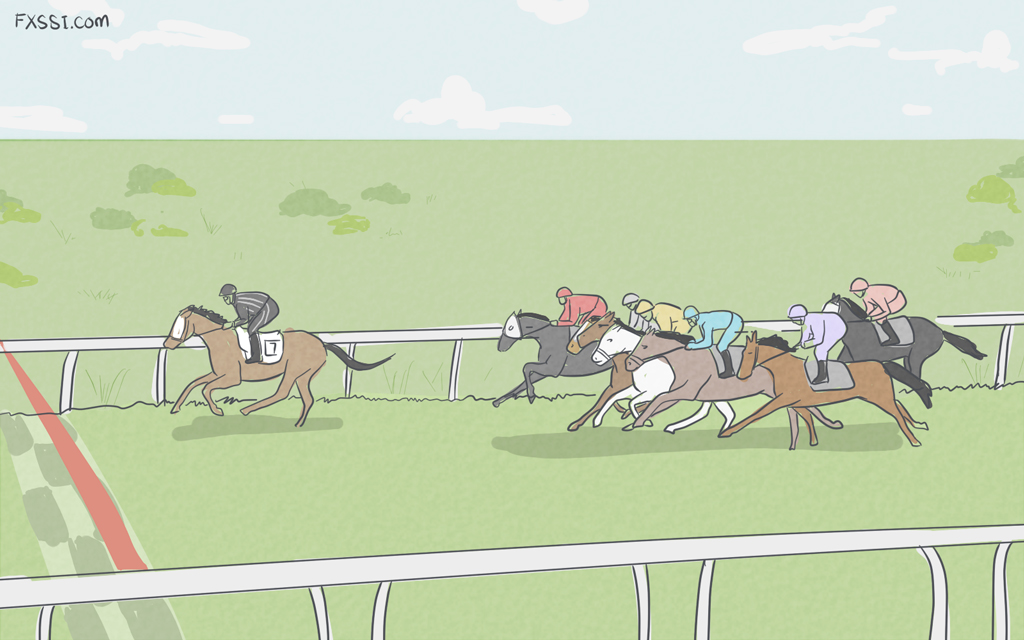Do you suffer from Perfectionism, and How Does it affect your Trading?
By different estimates, psychology makes up to 70-90% of successful trading, and thereby perfectionism will affect your trading results as a psychological "malady" by some means.

Is Perfectionism a Disease?
You might think that there must be some mistake.
How can such a seemingly positive trait of character be a disease? However, if a psychotherapist discovers that you suffer from this malady, you’ll be necessarily offered to take curative measures to treat perfectionism.
Nevertheless, why does striving for perfection that must theoretically improve peoples’ lives turn into a serious psychological problem?
First, it should be noted that perfectionists have excessive demands on themselves. The slightest imperfection both in their own and someone else's actions causes them to really suffer.
Perfectionists have their own vision of what things should be in a perfect world. If the reality goes against the vision, they feel a whole range of negative emotions such as disappointment, sadness, despair, and so forth.
They often feel guilty about not being able to get close to their perfect vision.
Sometimes these feelings may be so intense that they cannot start doing something just because they suppose in advance that the result of their actions will not correspond to their perfect vision existing in their subconscious mind. It is often called perfectionist paralysis.
Everyone near them may think that their inactivity results from mere laziness, but it has nothing to do with the inactivity – the point lies in procrastination.
Psychologists note that perfectionism often causes procrastination (the habit of putting off deeds requiring immediate attention or pressing things to do constantly till another day or time).

"If I cannot do something as well as I want, I will better do nothing". This is how perfectionists usually think when they cannot see the ways of how to implement their ideas. They delay all their things to do till another day that makes it look like endless procrastination…
As a result, they get a stack of things to do – the idea of that makes them fear it. This is why they even don’t get through the stack of things that lead them into a state of depression as the years go by.
We call these unfinished things a "brick above your head" in everyday life – it means that right now you can’t solve a problem that presses on your head constantly.
There is one more trap associated with perfectionism.
As we told you before, perfectionists cannot start on their task since they suppose that they will not do it as well as they imagined it in their heads. However, if a man doesn’t start doing something, he/she will never finish it, isn’t it?
One of the most severe problems that perfectionists experience is their inability to separate important things to do from unimportant ones. They try to do even the most minor things perfectly putting so much time and energy into it that they don’t have any of that left for doing really important things.
How Can One Know That They are a Perfectionist?

Truly speaking, there is nothing challenging about it, and a special diagnostic is not required in this case. If you notice an excessive pursuit of perfection with yourself, try to over-regulate your own life or do everything until it is perfect, you’re a perfectionist.
It’s interesting that perfectionism is often seen in one sphere of human activity only. For example, He can be a careerist and an ideal worker at work but there can be a mess at His home or vice versa: his housewife can "polish" the entire apartment until it shines and put things right but she can be completely indifferent at work.
In this case, Steve Jobs springs to mind at once: he didn’t pay much attention to own appearance, always wore his black turtleneck, jeans, and sneakers, although he was so meticulous about his products that he could postpone their release for months only because some detail of the product wasn’t perfect.
Perfectionism in Trading
Next, we’re going to tell you about typical psychological traps in trading that provoke perfectionism. If you notice something like this with yourself, you’ll already know what you need to struggle with.
Balance curve
It may be imagined what kind of yield curve a perfectionist-trader dreams of… The curve must represent a smooth and sometimes exponential line that leads to the right and to the upside.
This is why a Perfectionist checks out a balance chart after virtually every closed winning trade and feasts eyes with it.
In practice, it is almost impossible to obtain such a result. Drawdowns and periods of losses are normal for trading but not for a perfectionist.
- To keep the yield curve in a "beautiful" state, a perfectionist can do the following things:
- Drag-and-drop a stop-loss level to avoid losses and not to ruin the balance chart;
- Double a position to recover equity as soon as may be;
- Wait out losses, and so forth.
As you know, all of the previous never helps.
When everything goes too far, and the situation cannot already be changed for the better (for example, you incurred severe losses), an old account is closed, and a new one is opened.
The scenario will certainly repeat itself on the new account.
Therefore, perfectionists waste too much time while trying to keep the yield curve in a perfect state. This time would be better spent to practice trading and train their discipline.
By the way, perfectionists are more inclined to violate trading discipline than other types of people, if for no other reason than the latter is usually different from how the yield curve of their accounts looks like.
Hence came a ready-made solution for the problem of the "perfect yield curve" – just bail on it! Don’t look at it, don’t feast your eyes on it, and don’t pay particular attention to it. This will help you to get rid of a sense of discomfort and a desire to remedy the situation as soon as possible.
Beauty on a chart
It is a very common practice which can be clearly seen from the sidelines but cannot be noticed with ourselves.
We all use MetaTrader 4 terminal which is still very popular despite its some "boneheadness".
A great many custom resources largely contributes to its popularity. They include templates, scripts, expert advisors and also rather popular indicators.
Speaking of perfectionists, when they access this freely available library of indicators, they start applying them in trading so that a yield curve on their balance chart looks "beautiful".
They become so obsessed with the selection, customization, and optimization of indicators that they forget all about their primary task, i.e. making money.

Psychologically speaking, the problem here is that there are very few working Forex trading techniques. This is the reason why a perfectionist-trader begins to mistakenly believe out of despair that the more beautiful is a balance chart, and the better customized are indicators, the higher chances he/she has to earn a profit. Such traders don’t even pay special attention to what formula is indicator-based.
We happened to meet some individuals who were so obsessed with this optimization that when talking to them we felt as if everything was lost to them, and they would never get out of the trap of their false beliefs. Just imagine a man who has been using classical indicators for over 4 years without success.
What’s the conclusion? Don’t plot everything and anything on your chart – first, make sure that a technique or an indicator works, and then customize it to meet your needs.
And yet you shouldn’t believe every word you read on the Internet especially on the subject of Forex trading. Verify every statement carefully since people may tell you lies consciously or unconsciously or leave something unsaid.
Perfectionism While Selecting a Broker
It is a newbie trader’s favorite thing to do: he/she hasn’t even mastered a trading terminal and developed a strategy, but spends plenty of time searching for a perfect broker.
There are hot discussions on the subject of the best and worst brokers often taking place on various Internet forums. It is in the interests of brokers for the discussions to happen, and they often pour oil on the flames.
When traders don’t fix their attention on their primary task – making money – and waste all their time on flamewars, it plays into the hand of brokers. The result of it is that traders blame their present broker (but not themselves) for blowing up their accounts and switch to another "more honest broker".
Generally speaking, it all looks ridiculous to the effect that more than 99% traders lose their money on top of everything else. Does it matter which broker you give your money to?
Brokers are all the same! Yes, some of them have a larger spread, and some have a narrower spread. However, it doesn’t make so much difference for ultimate trading results as losing trading.
Our recommendation is as follows: don’t get too hung up on the selection of a broker but choose any more or less known one operating more than 5 years in the market and having no strong signs of a Ponzi scheme. Should you happen to trade with profit consistently, nothing will prevent you from choosing another broker if you’re not satisfied with the present broker.
Let’s sum up. The conclusion to be drawn from the above is that perfectionism represents excessive time spent on not-so-important things to do.
How Can One Defeat Perfectionism?
Admission of a problem is the first step toward its solution!
Of course, there is nothing wrong with the pursuit of perfection that makes us try to defeat it. This is why you should make sure that this pursuit will not stop you from being successful in your communication with people, work, study, trading, etc., but on the contrary, contribute to it.
By the way, employers really like perfectionists for their qualitative approach to their work, but employees don’t like them since they require employees to make the same efforts.
When you realize that you but not the people near you require yourself to be perfect, you’ll get the unbearable weight of responsibility taken on by yourself off your chest.
You should also understand that a positive outcome cannot be achieved on the first try.
The perfect vision existing in your subconscious mind must become a distant ultimate objective that can be met by getting through multiple interim stages. As for these interim stages, they must not be necessarily perfect: they can be quite rough approximations of the objective that a perfectionist wishes to achieve eventually.












